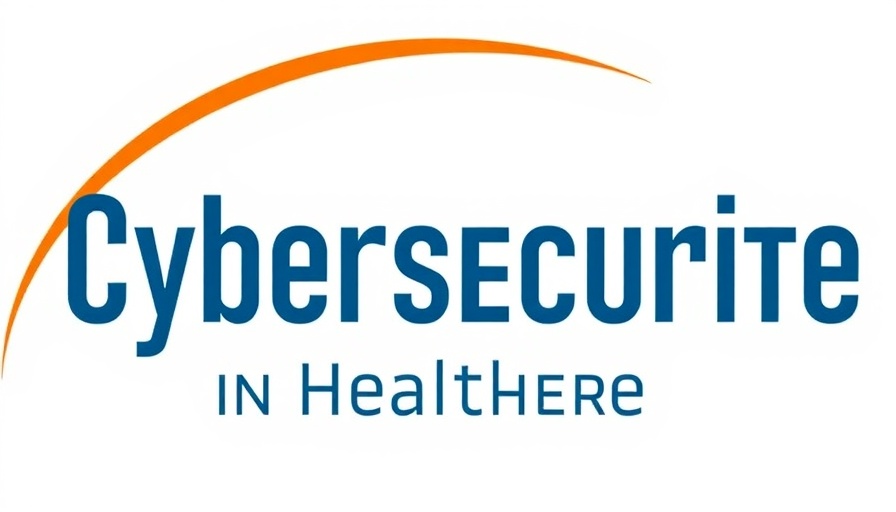
Cybersecurity in Healthcare: A Growing Concern
The healthcare sector has become a prime target for cybercriminals as the demand for digital health records increases. Notably, a recent report highlighted that 2023 saw a staggering 725 hacking-related breaches in U.S. healthcare, exposing over 124 million patient records. This alarming trend indicates that cybersecurity must now become a foundational element of healthcare infrastructure.
The Dollar Impact of Cyber Breaches
Cybersecurity incidents are not just about data; they also carry a hefty financial toll. The average cost of a data breach in healthcare stands at an eye-watering $10.93 million. For healthcare organizations, this means that investing in preventative strategies isn't just optional—it’s a financial necessity. With these statistics, it is imperative for healthcare leaders to incorporate cybersecurity training into the ongoing education of every staff member.
Human Error: The Biggest Vulnerability
Despite advancements in technology, human error remains a significant weak point in healthcare cybersecurity. Studies reveal that nearly 33% of healthcare cyber incidents are attributed to mistakes made by employees—primarily due to a lack of training. Alarmingly, around one-third of healthcare staff report having received no formal cybersecurity training from their employers. This gap in knowledge underscores the need for continuous education and training that parallels the rigorous ongoing education already standard in medical practice.
Building Patient Trust Through Cybersecurity
Today's patients are more than just users of medical services; they are consumers with high expectations for data privacy and protection. According to research, 66% of patients would switch healthcare providers if their personal data was compromised. Establishing strong cybersecurity practices is essential for maintaining patient trust, which is why cybersecurity training and awareness are vital components of healthcare strategy.
Industry-Leading Certifications: Why They Matter
To bolster their cybersecurity measures, many healthcare organizations are turning to industry-recognized certifications. Credentials such as the Certified Information Systems Security Professional (CISSP) and CompTIA Security+ validate the expertise of IT and security personnel in preventing, detecting, and responding to cyber threats. These certifications not only enhance employee capabilities but also demonstrate a commitment to maintaining high standards of patient data security.
Creating a Culture of Cybersecurity
Embedding cybersecurity training within the culture of a healthcare organization transforms how staff perceive their role regarding data protection. As Dara Warn, CEO of INE Security stated, "Every member of a healthcare team – from physicians to IT personnel – plays a role in cybersecurity." By prioritizing educational initiatives that promote cybersecurity, organizations signal their dedication to protecting patient information.
Action Steps for Healthcare Leaders
Healthcare professionals and leaders ought to consider the following actions to improve cybersecurity awareness and practices:
- Make cybersecurity training a standard part of employee onboarding.
- Implement ongoing education programs tailored to different roles within the organization.
- Encourage participation in industry-recognized cybersecurity certification programs.
By addressing these areas, healthcare providers can create a safer environment for patient data and reinforce trust in an increasingly digital healthcare landscape.
Final Thoughts on Cybersecurity Training
As we reflect on the critical nature of cybersecurity in healthcare, it is clear that proactive training and continual education are indispensable. Cybersecurity awareness and skills development can be the difference between maintaining patient trust or facing the repercussions of a data breach. Therefore, for healthcare organizations, the message is clear: prioritize cybersecurity as paramount to medical healthcare delivery.
 Add Row
Add Row  Add
Add 




Write A Comment